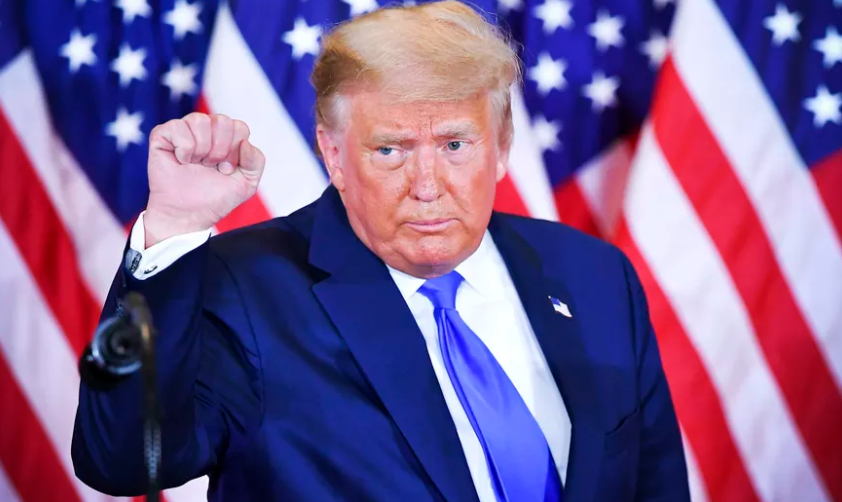Donald Trump’s Victory: What It Means for America and Beyond

In a historic return to the White House, Donald J. Trump has emerged as the President elect of the 2024 U.S. presidential election, securing a new mandate from Americans after a competitive race.
Republican Donald Trump secured enough Electoral votes to complete a stunning return to the White House after four years out of power. Trump gathered the 270 electoral college votes needed to win after capturing three battleground states from the Democrats: Georgia, Pennsylvania and Wisconsin, shown in red stripes.
This unexpected return, marking his second non-consecutive term, brings fresh questions about the direction of U.S. domestic and foreign policy, economic priorities, and America’s role on the global stage.
Focus on Economic Revival and Border Security
Throughout his campaign, Trump highlighted two key priorities: stimulating economic growth and securing U.S. borders. Trump pledged to bring back American manufacturing jobs, ease tax burdens on businesses, and introduce policies that favor economic self-reliance. His administration is expected to revive his previous approach to tax reform and deregulation, especially targeting middle-income earners and small businesses, promising to boost growth and counter inflationary pressures.
On immigration, Trump is expected to renew his hardline approach, with policies aimed at strengthening the U.S.-Mexico border and tightening immigration laws. This could include a return to policies like the “Remain in Mexico” program, as well as increased funding for border infrastructure.
Shifts in Foreign Policy: “America First” Revived
Trump’s “America First” philosophy, a hallmark of his first term, is set to define his foreign policy approach again. During his campaign, he vowed to reduce military involvement overseas, review foreign aid expenditures, and focus on strengthening alliances primarily where it benefits U.S. interests. Analysts predict potential shifts in U.S. relations with NATO, a more transactional approach to trade agreements, and renegotiations with key partners like the European Union and China.
Trump has also promised to revisit the U.S. stance on major international agreements, from climate accords to defense treaties, which could reshape America’s standing in global governance. His previous decisions to withdraw from the Paris Climate Accord and the Trans-Pacific Partnership may signal a return to more isolated stances on such issues.
Internal Division and Social Policy Debates
Trump’s election victory is likely to heighten internal political divisions, with strong reactions expected from both supporters and opponents. His policies on social issues—such as reproductive rights, gun control, and health care—may face resistance from a Democrat-controlled Senate, should the final congressional makeup lean that way. Tensions over these policies could deepen political rifts across the U.S., potentially shaping a more polarized landscape ahead of the 2028 elections.
Global Response and Implications for Allies
International leaders have reacted cautiously, with allies and rivals alike gauging the potential impact of Trump’s win. European leaders, often critical of his “America First” stance, may brace for a less cooperative stance on global initiatives like climate change and human rights. Meanwhile, rival powers such as China and Russia are likely to monitor Trump’s foreign policy moves closely, especially given his previous tough stance on China’s trade practices.
What’s Next?
With Trump set to re-enter the White House, the nation prepares for a second term filled with both opportunities and challenges. While supporters look forward to a revival of policies they believe will protect American jobs and national security, critics worry about possible setbacks in social justice and environmental action. Trump’s victory, as analysts suggest, may usher in an era of intensified policy shifts, potentially reshaping the course of American politics for years to come.


Comments are closed.